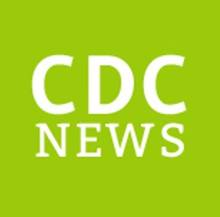User login
At least 16 of nearly 54,000 unaccompanied children from Central America have been hospitalized with respiratory diseases, Dr. Edith N. Nyangoma and her associates reported August 15 in Morbidity and Mortality Weekly Report (63(32);698-99).
The cases were in persons aged 14–17 years, and diagnoses included laboratory-confirmed pneumococcal pneumonia with laboratory-confirmed influenza (three cases) and without laboratory-confirmed influenza (four cases), influenza pneumonia (one case), and pneumonia with no identified etiology (eight cases).
Five patients experienced septic shock requiring intensive care. No case was fatal. All six cases for which pneumococcal isolates were available were identified as serotype 5, a serotype included in the 13-valent pneumococcal conjugate vaccine (PCV13) (Prevnar-13, Pfizer). Of the 16 patients identified in this cluster, 11 were tested for influenza viruses; four (36%) were positive (two for influenza A[H1N1]pdm09, one for influenza B, and one for influenza A by rapid test), according to the report.
In response to the findings, officials at the Centers for Disease Control have recommended that all unaccompanied children residing in temporary or standard shelters receive influenza vaccine and PCV13 in addition to routinely recommended vaccines. Among the 2,000 children thus far vaccinated in four affected shelters, there have been no serious adverse events.
Routine annual influenza vaccination is recommended for all persons in the United States who are at least age 6 months, but school-aged children in Central America generally are not targeted for vaccination.
PCV13 is routinely given in the United States at age 2–59 months. It is recommended for the older unaccompanied children because of the unexpected number of pneumococcal pneumonia cases occurring in the context of crowded conditions.
Additional information about the ongoing humanitarian and public health response is available at http://emergency.cdc.gov/children/unaccompanied/index.asp.
At least 16 of nearly 54,000 unaccompanied children from Central America have been hospitalized with respiratory diseases, Dr. Edith N. Nyangoma and her associates reported August 15 in Morbidity and Mortality Weekly Report (63(32);698-99).
The cases were in persons aged 14–17 years, and diagnoses included laboratory-confirmed pneumococcal pneumonia with laboratory-confirmed influenza (three cases) and without laboratory-confirmed influenza (four cases), influenza pneumonia (one case), and pneumonia with no identified etiology (eight cases).
Five patients experienced septic shock requiring intensive care. No case was fatal. All six cases for which pneumococcal isolates were available were identified as serotype 5, a serotype included in the 13-valent pneumococcal conjugate vaccine (PCV13) (Prevnar-13, Pfizer). Of the 16 patients identified in this cluster, 11 were tested for influenza viruses; four (36%) were positive (two for influenza A[H1N1]pdm09, one for influenza B, and one for influenza A by rapid test), according to the report.
In response to the findings, officials at the Centers for Disease Control have recommended that all unaccompanied children residing in temporary or standard shelters receive influenza vaccine and PCV13 in addition to routinely recommended vaccines. Among the 2,000 children thus far vaccinated in four affected shelters, there have been no serious adverse events.
Routine annual influenza vaccination is recommended for all persons in the United States who are at least age 6 months, but school-aged children in Central America generally are not targeted for vaccination.
PCV13 is routinely given in the United States at age 2–59 months. It is recommended for the older unaccompanied children because of the unexpected number of pneumococcal pneumonia cases occurring in the context of crowded conditions.
Additional information about the ongoing humanitarian and public health response is available at http://emergency.cdc.gov/children/unaccompanied/index.asp.
At least 16 of nearly 54,000 unaccompanied children from Central America have been hospitalized with respiratory diseases, Dr. Edith N. Nyangoma and her associates reported August 15 in Morbidity and Mortality Weekly Report (63(32);698-99).
The cases were in persons aged 14–17 years, and diagnoses included laboratory-confirmed pneumococcal pneumonia with laboratory-confirmed influenza (three cases) and without laboratory-confirmed influenza (four cases), influenza pneumonia (one case), and pneumonia with no identified etiology (eight cases).
Five patients experienced septic shock requiring intensive care. No case was fatal. All six cases for which pneumococcal isolates were available were identified as serotype 5, a serotype included in the 13-valent pneumococcal conjugate vaccine (PCV13) (Prevnar-13, Pfizer). Of the 16 patients identified in this cluster, 11 were tested for influenza viruses; four (36%) were positive (two for influenza A[H1N1]pdm09, one for influenza B, and one for influenza A by rapid test), according to the report.
In response to the findings, officials at the Centers for Disease Control have recommended that all unaccompanied children residing in temporary or standard shelters receive influenza vaccine and PCV13 in addition to routinely recommended vaccines. Among the 2,000 children thus far vaccinated in four affected shelters, there have been no serious adverse events.
Routine annual influenza vaccination is recommended for all persons in the United States who are at least age 6 months, but school-aged children in Central America generally are not targeted for vaccination.
PCV13 is routinely given in the United States at age 2–59 months. It is recommended for the older unaccompanied children because of the unexpected number of pneumococcal pneumonia cases occurring in the context of crowded conditions.
Additional information about the ongoing humanitarian and public health response is available at http://emergency.cdc.gov/children/unaccompanied/index.asp.
FROM MORBIDITY AND MORTALITY WEEKLY REPORT
